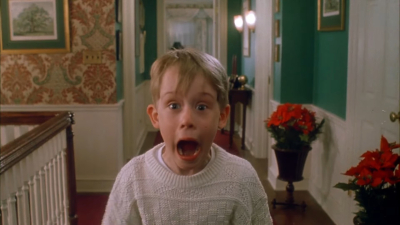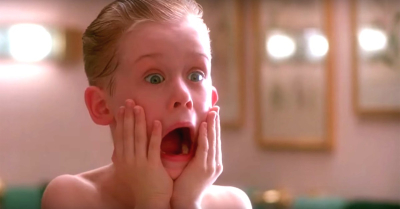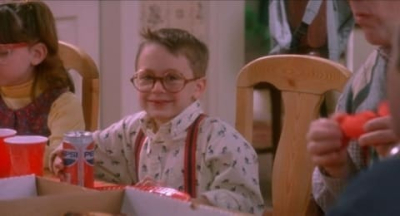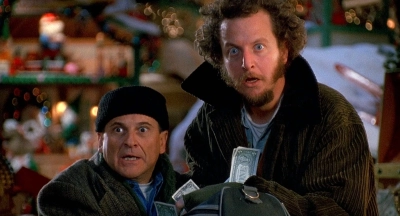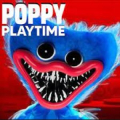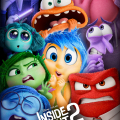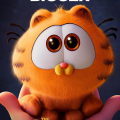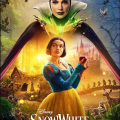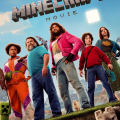Home Alone
"Home Alone" is one of those movies that stirs up an entire kaleidoscope of emotions. Imagine being 8 years old, suddenly presented with an empty house and unlimited freedom. The movie captures this fantasy, adding a touch of danger and ingenuity. As I sat down to revisit the film, I was both eager and apprehensive, wondering how it would stand against the nostalgia filtering my memory.
The journey through "Home Alone" isn't merely a child's adventure but a nostalgic portal for many of us who grew up in the '90s. As an adult, I was curious to see how the film, which drew me in with its wild possibilities and slapstick humor, would resonate now. Little did I realize, even as a grown-up, the film still holds the capacity to charm and amuse.
Historical Context
Understanding the backdrop against which "Home Alone" was made provides another layer of appreciation. Released in 1990, the movie quickly became a holiday staple, capitalizing on the allure of independence and the comical misadventures that follow. It was a time when family-centric films thrived, offering a sense of unity and warmth both in households and cinemas.
John Hughes, known for his uncanny ability to capture the essence of various life stages, wrote the screenplay with a blend of wit and heart. "Home Alone" exemplifies his brilliance, showcasing a child's perspective with grown-up dilemmas. It stands as a testament to filmmaking that achieved commercial success without sacrificing narrative charm.
Why "Home Alone" is Interesting
From the get-go, the film delineates itself from typical family comedies by interlacing humor with elements of suspense. The premise alone — a child left to fend off burglars — combines the innocence of youth with unexpected bravery. This juxtaposition makes the movie not only funny but intriguingly suspenseful.
The traps aren't just hurdles for the burglars; they are symbols of Kevin's innovation. These elaborate snares speak volumes about creativity and resourcefulness, representing every child's daydream of setting up their environment in fantastical ways. Watching Kevin outwit adults is empowering, a clever twist that makes the storyline compelling beyond its laughs.
Kevin's Journey
Kevin McCallister, played with evident charisma by Macaulay Culkin, is at the heart of this adventure. Unlike the typical passive child in distress, Kevin embraces his odd situation. Watching him transition from frustration at the chaos caused by his numerous relatives to the joy of self-reliance is captivating.
What stands out is Kevin's confidence and his ability to have fun, even when the situation borders on chaotic. He explores boundaries, tests limits, and dives right into the experience with wide-eyed amazement. The film beautifully captures a child's resilience and adaptability, attributes that remain evergreen and universally appealing.
Film Techniques and Style
Director Chris Columbus constructs scenes laden with humor and suspense, using both camera angles and pacing to elevate the story. Slapstick comedy is interwoven with moments of genuine tension, keeping viewers at the edge of their seats while simultaneously amusing them. The film's style is a masterclass in balancing moods.
Particularly impressive is how Columbus employs close-ups and slow-motion techniques to magnify the hilarity and gravity of particular scenes, like when Kevin's traps spring on the unsuspecting burglars. These cinematic choices ensure that the audience remains engaged, while never losing sight of the humor inherent in each mishap.
The Soundtrack's Role
John Williams' music score enhances the magic of "Home Alone", weaving an auditory tapestry that complements Kevin's adventurous spirit. From playful jingles capturing his solo antics to suspenseful tunes amplifying the tension during the burglary sequences, the music plays an integral role in storytelling.
Williams' compositions cradle the film's heartwarming moments as well. The soundtrack lays a foundation for the emotional nuances, enriching the viewer's experience by renewing emotions that words alone might fail to convey. The music subtly nudges the narrative forward, embellishing each scene with an added depth.
Comedy and Physical Humor
The portrayal of the bungling burglars, Harry and Marv (brilliantly brought to life by Joe Pesci and Daniel Stern), is a testament to the power of physical comedy. Their exaggerated antics and clueless escapades provide belly laughs, and their chemistry injects another layer of humor — a perfect foil to Kevin's sharp wit.
The slapstick comedy resonates not just as a child's amusement but as timeless humor. Adults, too, can appreciate the precision timing and exuberant performances that contribute to a comedic spectacle. The burglars' mishaps offer a carefree hilarity that underscores the film, rendering it genuinely enjoyable across generations.
Plausibility vs. Entertainment
One intriguing aspect of "Home Alone" is the suspension of disbelief it demands. As an adult, I found myself questioning some of the film's implausible scenarios. However, each improbable event swiftly wraps into a cohesive narrative fueled by charm and humor.
While the realism wavers at times, it is precisely this divergence from plausibility that allows the film to revel in sheer entertainment. By gradually inviting the viewer to leave reality behind, "Home Alone" creates a space where fantasy dovetails seamlessly with farcical exuberance.
Emotional Core
Beneath the layers of comedy and adventure lies a beating heart that explores themes of family, connection, and loneliness. Kevin's isolation is portrayed with surprising nuance, capturing the initial thrill and subsequent longing for his family's return.
This emotional depth is accomplished without overly sentimental tropes. Instead, "Home Alone" strikes a delightful balance, reminding us of the importance of family, and weaving in poignant moments that give substance to an otherwise action-packed narrative.
Character Development
One of the film's subtle triumphs is its approach to character development. Kevin emerges not just as a resourceful child but as a nuanced individual discovering his own strengths. His relationship with the mysterious neighbor, Old Man Marley, adds layers to his journey as well.
The film's treatment of secondary characters, like Marley's redemption arc, even invites adult viewers to reflect on the misconceptions and judgments people harbor. These nuanced depictions give "Home Alone" a richness that transcends its primary comedy genre.
Impact on Pop Culture
"Home Alone" has undeniably left an indelible mark on pop culture, influencing everything from holiday traditions to the way burglars in comedies are portrayed. Phrases and scenes from the movie have seeped into everyday vernacular, becoming timeless references that still evoke laughter.
The imaginative traps Kevin concocts, along with his clever one-liners, continue to inspire more than just nostalgia. For many, the film is a beloved relic that captures the vibrancy of childhood mischievousness and the unbridled joy of discovery.
Legacy and Sequels
Given its immense popularity, it's no surprise that "Home Alone" spawned a series of sequels. However, none quite capture the unique charm and simplicity of the original. The first film remains a treasured artifact not only because of its fresh approach but also due to its authentic portrayal of a holiday adventure.
While some sequels tried to replicate the formula, they often missed the mark on the delicate balance of humor and heart that made the first film so captivating. In revisiting the original, one can easily see why it remains timeless — a testament to creativity and heartfelt storytelling.
Personal Reflections
Revisiting "Home Alone" as an adult offered new insights into why this film resonated so deeply with my younger self. The allure of freedom, mixed with the realization of family bonds, hits with renewed significance. Kevin's tale reaffirms the ability of films to touch hearts across different life stages.
There's a beauty in realizing that the childhood wonder I experienced watching "Home Alone" years ago still translates into adult appreciation. The film's ability to prompt laughter, even after numerous viewings, is an enduring gift that speaks to its brilliant script and heartfelt execution.
Community and United Experience
Storytelling like that of "Home Alone" serves as a communal bridge, bringing generations together in shared joy. Each Christmas, families convene, ready to laugh anew at Kevin's misadventures, proving that some narratives possess an eternal relevance.
The film showcases the power of cinema to unite audiences, providing a slice of shared experience that transcends individual memories. Watching "Home Alone" isn’t just about the characters within, but the connection forged among viewers themselves, binding them through collective laughter.
Conclusion
"Home Alone" endures not only as a film but as a cultural phenomenon that beautifully encapsulates boyhood genius and the spirit of adventure. Its enduring charm lies in its ability to meld humor, heart, and the thrill of autonomy in an unforgettable package.
Ultimately, "Home Alone" embodies what it means to embrace one's individuality while cherishing family roots. As I watched the credits roll, I felt gratitude for the flicker of magic it brings with each viewing. More than just a film, it's a delightful reminder that cinema can still be the perfect escape.
Home Alone
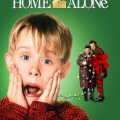
To download the app, you will get links to the Official Website and/or official digital markets.
